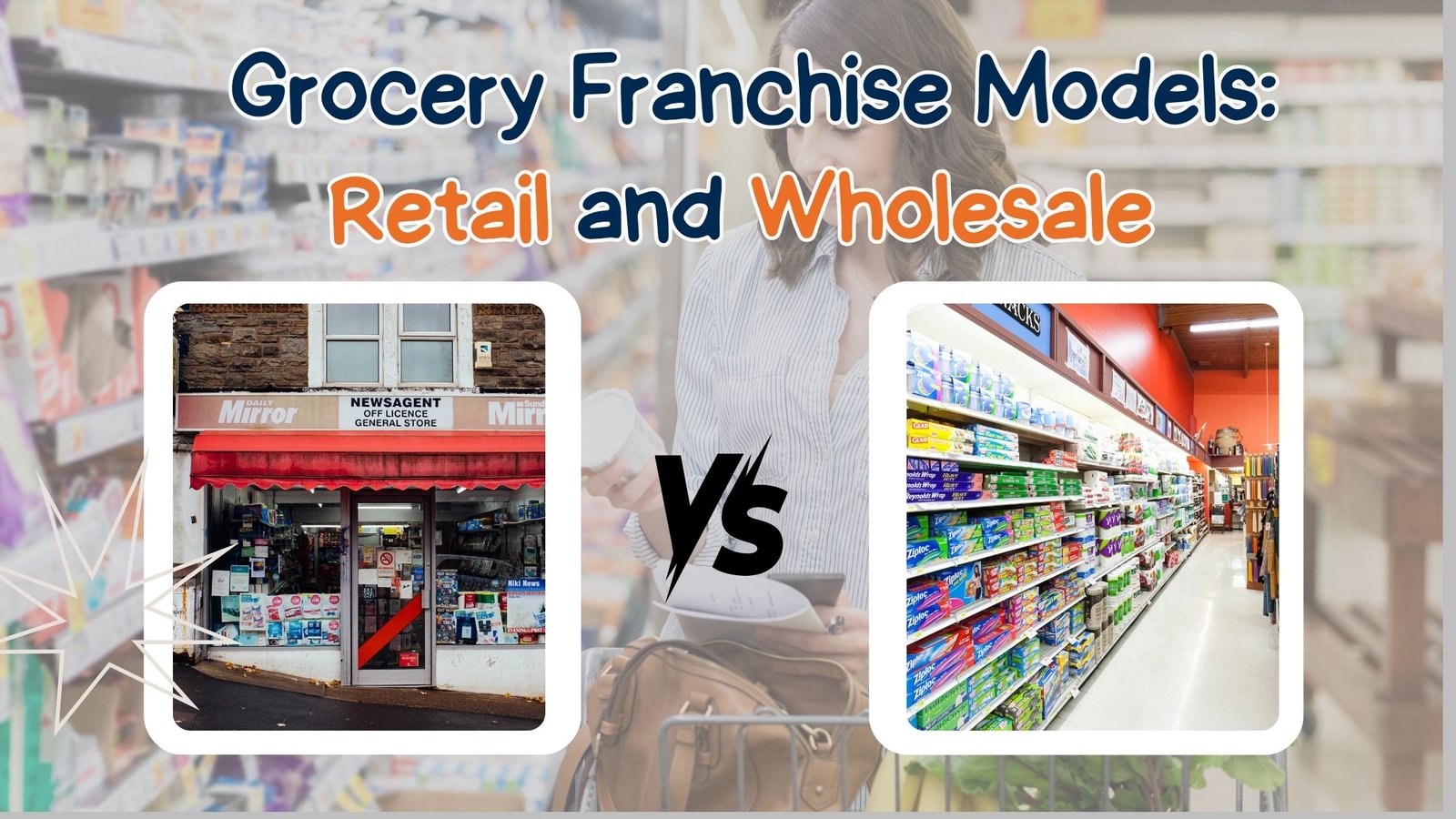Entrepreneurial opportunities in the supermarket sector are increasing rapidly. You’re making a wise business choice if you are considering opening a franchise grocery store. There’s a crucial decision that new entrepreneurs often overlook. It is choosing between the retail and wholesale models of your grocery franchise.
Each model has its advantages, and each faces different challenges. You can make informed decisions based on your budget, business goals, and current market conditions by understanding these differences.
Explore which model of grocery franchise is best for you and your business.
Understand Retail Grocery Franchise Models
Retail grocery stores focus on direct sales to consumers. They serve the local community and neighborhood, providing convenience to shoppers.
Retail Grocery Franchises: Key Features
The convenience of the customer is at the heart of retail grocery franchises. Stock up on the essentials that every family needs, such as fresh fruits and vegetables, household goods, and packaged products. Customers are residents of the area who shop regularly for daily needs.
Store layouts are designed to facilitate easy navigation and speedy checkout processes. Retail grocery chains are open longer hours for working families and professionals.
Retail models: Benefits and advantages
Retail grocery franchises are attractive because of their higher profit margins. It is possible to mark products up significantly in comparison with wholesale prices. This applies especially for convenience products and fresh produce.
Retail models strengthen customer relationships. Customers become loyal to your shop, generating a constant revenue stream. You can respond to seasonal and local demands.
Wholesale operations require larger initial investments in inventory. Retail franchises, however, have smaller ones. They are therefore more affordable for those with limited capital.
Explore Wholesale Grocery Stores Franchise Opportunities
The wholesale grocery franchise model focuses on the sale of large quantities to businesses such as restaurants, hotels, and institutions rather than consumers.
Wholesale Operations: How They Work
Wholesale grocery stores purchase bulk products directly from the manufacturers or distributors. Then, you sell the items in bulk to commercial customers such as retailers, restaurants, and caterers.
Warehouse and storage space become crucial for wholesale operations. To efficiently handle large orders, you’ll require a lot of space for bulk storage and equipment.
The advantages of wholesale models
Volume sales generate substantial revenue quickly. The profit margins are smaller per unit, but the volume of sales can generate impressive profits.
Franchises that operate wholesale grocery stores often have more predictable income streams. Cash flow is more predictable when commercial clients place scheduled, regular orders.
Developing relationships with buyers of commercial goods can result in long-term agreements and consistent business. These relationships can last many years once they are established.
Compare Investment Needs
The initial investment required for retail versus wholesale franchises is significantly different. The retail model typically requires lower upfront investment but higher costs per square foot for prime locations.
For wholesale grocery franchises, the initial investment is higher due to warehouse space and bulk inventory. They also require specialized equipment. Warehouse locations, however, are typically less costly than retail storefronts.
The staffing requirements also differ. While retail stores require customer-oriented employees, wholesale operations need workers with skills in inventory management and logistics.
Your Choice: Market Factors
The local market influences the best model for a grocery franchise. Retail models are more popular in areas of high residential density, whereas wholesale models work better in industrial zones with a lot of restaurants and businesses.
Analyzing the competition is essential. A wholesale approach may be more advantageous if your locality already has a lot of retail stores. In contrast, residential areas that are underserved might be open to a retail grocery franchise.
Also Read: 🛒 Grocery Store Franchise Challenges in Tier 2 & 3 Cities – and How to Overcome Them
Make the right decision.
When choosing between the retail or wholesale model of a grocery store, consider your strengths and preferences. Retail businesses require commitment to the community and strong skills in customer service. Wholesale businesses need logistics expertise and relationship-building capabilities with commercial clients.
Assess your capital and time availability, as well as long-term goals. Wholesale operations usually follow normal business hours, but retail grocery franchises may require longer hours or weekend work.
Start Your Grocery Store Business
The retail grocery and wholesale supermarket franchise models are both viable options for achieving entrepreneurial success. It is important to match the model with your business goals, specific market conditions, and situation.
Analyze your local market and speak to existing franchisees. Start with a model that best fits your existing resources and expertise. You can always expand later.
The success of your grocery franchise depends on the execution, service to customers, and business management, rather than choosing the perfect model. You should focus on providing value to customers, whether they are individual consumers or business buyers.



